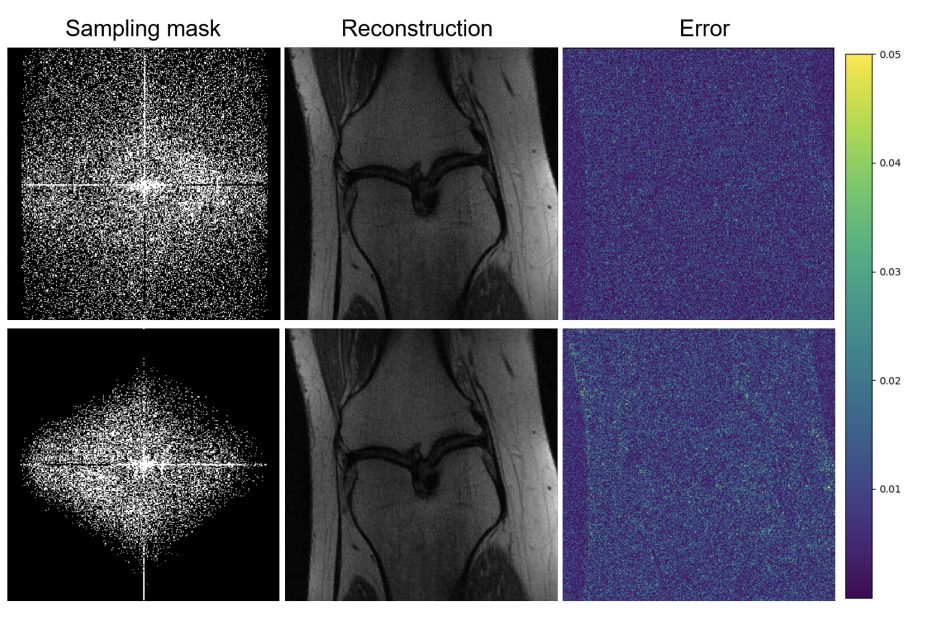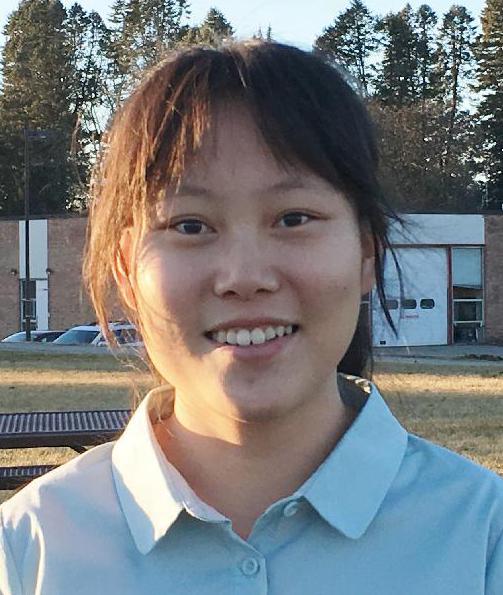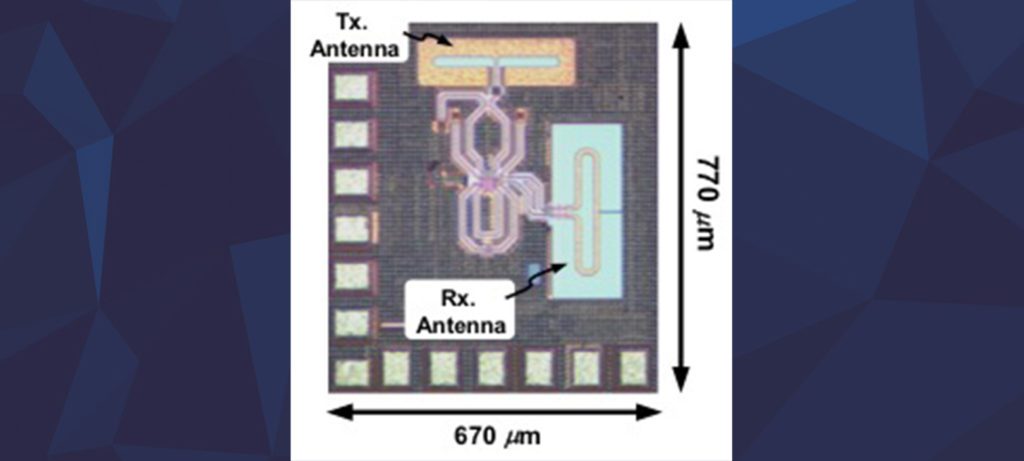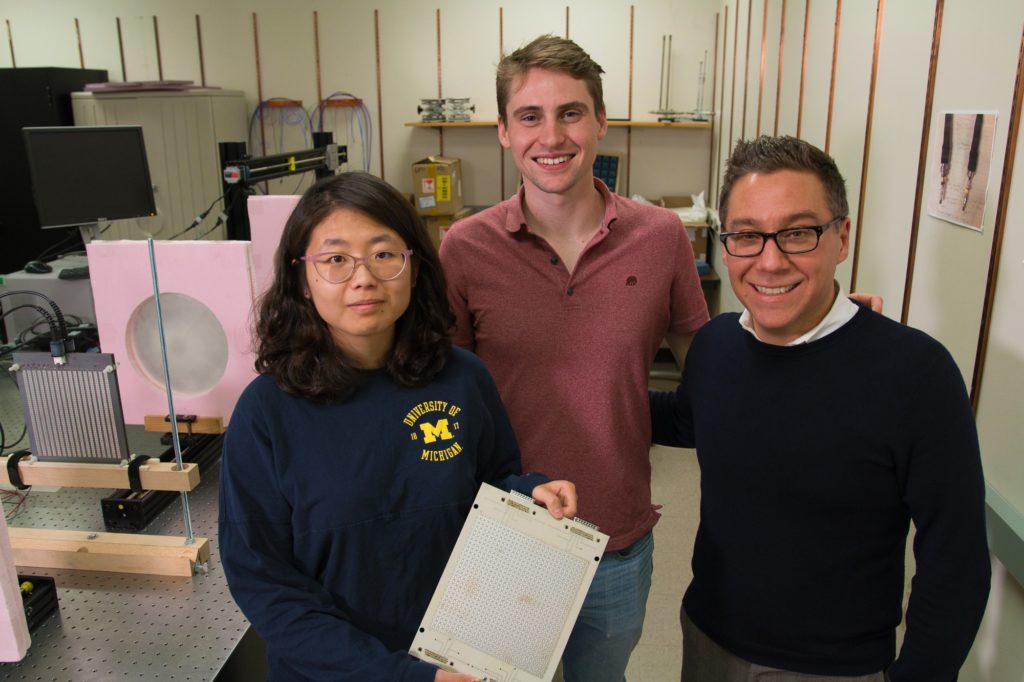This Q&A with award co-recipient Alfred Hero offers a glimpse into the emerging field of single photon imaging.


This Q&A with award co-recipient Alfred Hero offers a glimpse into the emerging field of single photon imaging.

KLA sponsored prizes for three outstanding projects focused on improving image processing for neurosurgery and satellite applications and MRI reconstruction techniques.
Transparent optical sensor arrays combine with a specialized neural network in new University of Michigan prototype

The interdisciplinary team was able to dramatically speed up the process while potentially doubling the quality of the image

The researchers’ imaging technique is fast, accurate, and reproducible

ECE postdoc Melissa Haskell works on improving functional magnetic resonance imaging so we can better measure and understand brain activity.
Researchers demonstrated the use of stacked, transparent graphene photodetectors combined with image processing algorithms to produce 3D images and range detection.
The post A 3D camera for safer autonomy and advanced biomedical imaging appeared first on Michigan Engineering News.

The rays used by airport scanners might have a future in medical imaging.

Terahertz and sub-terahertz imaging can provide superior results in some biomedical imaging, spectroscopy, and water saturation detection.

With $7.5M MURI grant, Professor Anthony Grbic is developing metamaterials for a new generation of integrated electromagnetic and photonic systems.